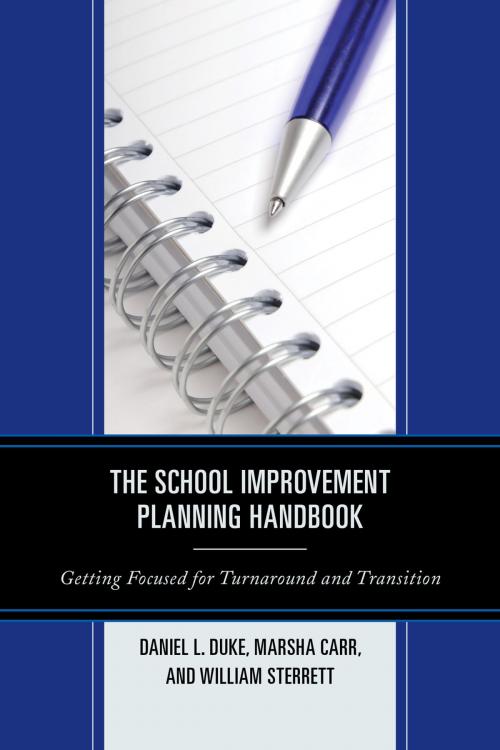The School Improvement Planning Handbook
Getting Focused for Turnaround and Transition
Nonfiction, Reference & Language, Education & Teaching, Educational Theory, Leadership, Administration| Author: | Daniel L. Duke, Marsha Carr, William Sterrett | ISBN: | 9781610486330 |
| Publisher: | R&L Education | Publication: | December 27, 2012 |
| Imprint: | R&L Education | Language: | English |
| Author: | Daniel L. Duke, Marsha Carr, William Sterrett |
| ISBN: | 9781610486330 |
| Publisher: | R&L Education |
| Publication: | December 27, 2012 |
| Imprint: | R&L Education |
| Language: | English |
Developing and updating school improvement plans is an annual ritual for virtually all school principals and their school improvement committees. Still, large numbers of schools continue to produce disappointing outcomes. The authors believe that part of the problem is the result of plans that focus on the wrong targets and that rely on ineffective strategies for improvement.
To help principals and their school improvement committees develop and implement plans with a greater likelihood of success, the authors offer a step-by-step process for school improvement planning. They go on to pinpoint specific school improvement goals, including raising reading and mathematics achievement, building robust school cultures, addressing the needs of English language learners, improving instruction, and reducing absenteeism and dropouts.
For each goal, a variety of objectives and proven strategies is presented along with sample school improvement plans. The book addresses the differences in planning to turn around a low-performing school, planning to sustain improvements over time, and planning to move a good school to a great school.
Developing and updating school improvement plans is an annual ritual for virtually all school principals and their school improvement committees. Still, large numbers of schools continue to produce disappointing outcomes. The authors believe that part of the problem is the result of plans that focus on the wrong targets and that rely on ineffective strategies for improvement.
To help principals and their school improvement committees develop and implement plans with a greater likelihood of success, the authors offer a step-by-step process for school improvement planning. They go on to pinpoint specific school improvement goals, including raising reading and mathematics achievement, building robust school cultures, addressing the needs of English language learners, improving instruction, and reducing absenteeism and dropouts.
For each goal, a variety of objectives and proven strategies is presented along with sample school improvement plans. The book addresses the differences in planning to turn around a low-performing school, planning to sustain improvements over time, and planning to move a good school to a great school.















